Every once in while, there needs to be a band like Paramore.
This is because fans love female fronted pop-rock. Heavy on hooks and riot grrl chic, Paramore is the 2000s version of No Doubt, all the way down to the bright hair of their female lead singer. While the two bands might be on different ends of the musical spectrum, the one thing that’s certain is that audiences are always gung-ho about the image. It’s appealing to a broad variety of fans; girls think Gwen Stefani and Hayley Williams “get them” while boys just want to get on them. Additionally, both bands sported breakout albums that defined their scenes (
Tragic Kingdom and
Riot!), and both culled a massive fan base with extensive touring.
Eventually, however, the freshness of the image wears off and audiences must judge these bands based on their artistic merit. While the populist consensus is that No Doubt have cemented their legacy with
Rock Steady, the same honor cannot be bestowed just yet for Paramore and their new album,
brand new eyes.
Teaming up with veteran producer Rob Cavallo (Who helmed Green Day’s
American Idiot), Paramore march through 12 slick songs that come off conservative from a band known for their energy.
While
brand new eyes makes for easy listening, it’s frustrating to see Paramore go through sonic growing pains that are normally reserved for a sophomore slump. The quintet’s main problem is that they are too afraid to really take a leap artistically, so their sound resides uncomfortably in the middle of giving fans what they expect, and pushing their sound just far enough to make sure people know this isn’t
Riot!: Part Deux.However, things begin promising as the band is off and running with “Careful,” a track that explodes with Zack Farro’s scattershot drumming, Taylor York’s chunky rhythms, Josh Farro’s thick lead work, and Williams’ commanding voice. The song finds Paramore doing what they do best, combining head bobbing rhythms with stop-on-dime precision and crashing riffs. Jeremy Davis does a great job of holding the arrangement down with his driving bass as the song breaks allow Farro the ability showcase his rich-delay enhanced guitar.
Yet for every breath of fresh air like “Careful,” there are the songs on
brand new eyes that really lack staying power and bog down the album’s middle. “Feeling Sorry’s” thumping rhythm goes nowhere fast, with a tired chorus that feels a little phoned in. “Looking Up” follows suit, implementing the same stuttering riffs that bands like Lit and Sum 41 played out to perfection years ago. Lead single “Ignorance” brings some interesting glam grooves and riffs to the table, but the chorus structure will feel like the lost verse of “Misery Business” for most die-hards. In short, Paramore know what they do very well, and it acts like a crutch sometimes.
The other problem with
brand new eyes is that most of these tracks are stuck in mid-tempo, never really choosing to fully embrace the potential for speedy melodies or acoustic leanings.
When Paramore does picks a side, the results are the most engaging on the album. “Misguided Ghosts” is a tender and folky acoustic ballad that displays Williams’ voice as bare and vulnerable. York and Farro’s guitar work sparkles in the space, and the sparse arrangement puts the focus back on song craft rather than predictable build-ups. “Playing God” displays an interesting synthesis of the two sides, but would have benefited from a bigger build up during the bridge. Against riffs that ebb and flow along Williams’ rising and falling backing vocals, Paramore illustrate they have the chops to explore new sonic territory, but seem too afraid to embrace it fully.
Still, the brightest part of the album is Williams. Her vocal command is extraordinary, adding spunky perspective and just the right amount of heartache to be taken somewhat seriously. On the expansive album closer “All I Wanted,” Williams shows her impressive register with the ascending repetition of, “All I wanted was YOOOOOOOOOU!” The band supports her well over thunderous drums and massive power-pop influenced riffs. Overall, the track reminds fans that Paramore were a once band with a huge sound, a band that seems to have shrunk it down for
brand new eyes.Sadly, Paramore play things close to the vest on
brand new eyes, and the result will appease their shallow fan base while leaving listeners that are interested in progression, a bit letdown. What made
Riot! exciting was the band’s willingness to flirt with new wave, vocal lines that felt spontaneous and guitar lines that went from tiny to huge at the drop of the hat. Those elements feel anemic on
brand new eyes. While the band channel them on cuts like “Turn It Off” and “Brick By Boring Brick” it’s with half the enthusiasm, half the fun.
Ultimately, Paramore need to decide if they want to appeal to teeny-boppers or open themselves up to real growth. No Doubt was able to balance both, pushing a more electronic flavor forward with
Rock Steady while keeping the hooky elements for their fans. Paramore need to find an avenue to explore and stick to it, instead of squandering their potential, leaving the sonically curious wanted more.
Key Cuts: Careful, Misguided Ghosts, All I Wanted
Sounds Like: From Under The Cork Tree (Fall Out Boy),
Bleed American (Jimmy Eat World),
Weezer (The Green Album) (Weezer)
Click on the artwork to sample some of brand new eyes for yourself!
 While I’m busy preparing a careful summation of 2009’s musical landscape, I thought I’d offer up one more list for you guys. Rather than looking to the past this time, here’s 10 highly anticipated albums slated for release in 2010:
While I’m busy preparing a careful summation of 2009’s musical landscape, I thought I’d offer up one more list for you guys. Rather than looking to the past this time, here’s 10 highly anticipated albums slated for release in 2010: 10. Massive Attack- Heliogoland (02.08.10): It’s been nearly 7 years since Massive Attack’s 100th Window and what a long wait it’s been for Heliogoland. While the trip-hop innovators have quietly worked on soundtracks and even dropped a teaser E.P. (2009’s Splitting The Atom E.P.), anticipation for a new LP is at an all time high. Yet rather than retreat into the glitchy keyboards that slowed down 100th Window, the almost tribal “Prayer For Rain” and string laced “Splitting The Atom” hint at a darker sound this time around. Guest vocals from TV On The Radio’s Tunde Adebimpe and Blur’s Damon Albarn add another level of interest beyond the band’s mysterious appeal.
10. Massive Attack- Heliogoland (02.08.10): It’s been nearly 7 years since Massive Attack’s 100th Window and what a long wait it’s been for Heliogoland. While the trip-hop innovators have quietly worked on soundtracks and even dropped a teaser E.P. (2009’s Splitting The Atom E.P.), anticipation for a new LP is at an all time high. Yet rather than retreat into the glitchy keyboards that slowed down 100th Window, the almost tribal “Prayer For Rain” and string laced “Splitting The Atom” hint at a darker sound this time around. Guest vocals from TV On The Radio’s Tunde Adebimpe and Blur’s Damon Albarn add another level of interest beyond the band’s mysterious appeal. 9. Alkaline Trio- This Addiction (02.23.10): After 2008’s overly slick Agony & Irony, Alkaline Trio are reportedly going back to their old punk roots with This Addiction. Signing to Epitaph, recording with Goddamnit! producer Matt Allison, and making Social Distortion comparisons are all great signs, but big-talk is cheap. Still, road-testing cuts like “Dine, Dine My Darling” and “This Addiction” on their most recent tour has excited fans and interested skeptics. The Trio sound lean, caustic, and morose, all the ingredients that made us fall in love with them in the first place.
9. Alkaline Trio- This Addiction (02.23.10): After 2008’s overly slick Agony & Irony, Alkaline Trio are reportedly going back to their old punk roots with This Addiction. Signing to Epitaph, recording with Goddamnit! producer Matt Allison, and making Social Distortion comparisons are all great signs, but big-talk is cheap. Still, road-testing cuts like “Dine, Dine My Darling” and “This Addiction” on their most recent tour has excited fans and interested skeptics. The Trio sound lean, caustic, and morose, all the ingredients that made us fall in love with them in the first place. 8. Tally Hall- TBA (Second Quarter 2010): Not much is known about the Tally Hall’s follow up to 2005’s incredible indie debut Marvin's Marvelous Mechanical Museum, but fans of the band are glued to YouTube while they wait. The Michigan 5 piece played a hand full of new songs on their last tour such as The Beatles tinged “Misery Fell” and the folk flavored “Sacred Beast,” before entering the studio this past October. As they work with producer Tony Hoffer (Beck, The Fratellis, The Kooks), it’s safe to expect more whimsical weirdness and genre bending from these color tie clad minstrels.
8. Tally Hall- TBA (Second Quarter 2010): Not much is known about the Tally Hall’s follow up to 2005’s incredible indie debut Marvin's Marvelous Mechanical Museum, but fans of the band are glued to YouTube while they wait. The Michigan 5 piece played a hand full of new songs on their last tour such as The Beatles tinged “Misery Fell” and the folk flavored “Sacred Beast,” before entering the studio this past October. As they work with producer Tony Hoffer (Beck, The Fratellis, The Kooks), it’s safe to expect more whimsical weirdness and genre bending from these color tie clad minstrels.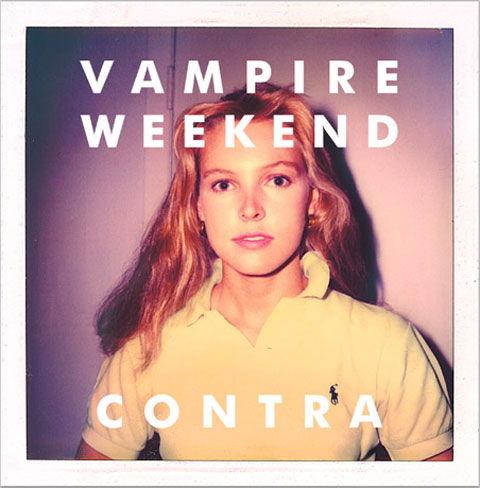 7. Vampire Weekend- Contra (01.11.10): How does a band follow up a debut album that critics adored and pop culture went nuts over? If you’re Vampire Weekend you write new songs as if the first record never happened. Due out in January, Contra finds the indier-than-thou 4 piece creating some of the most exciting material of their short career. “Cousins” zooms by with a flurry of notes and spastic drumming while “Horchata” is a sweet love song underneath a veneer of thick beats and playful xylophone. Be sure to check out Contra before it becomes “uncool” to like Vampire Weekend.
7. Vampire Weekend- Contra (01.11.10): How does a band follow up a debut album that critics adored and pop culture went nuts over? If you’re Vampire Weekend you write new songs as if the first record never happened. Due out in January, Contra finds the indier-than-thou 4 piece creating some of the most exciting material of their short career. “Cousins” zooms by with a flurry of notes and spastic drumming while “Horchata” is a sweet love song underneath a veneer of thick beats and playful xylophone. Be sure to check out Contra before it becomes “uncool” to like Vampire Weekend.








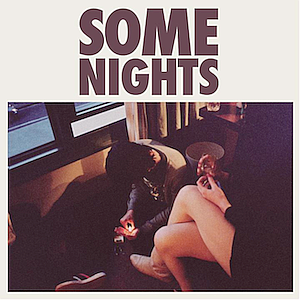



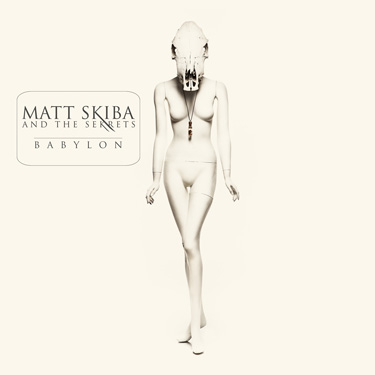





 9. Brand New- Deja Entendu (2003): While the Long Island sound had been perfected by other bands, Deja Entendu was held up as a gold standard for the melodic hardcore scene. Yet what made Brand New standout was the effortlessness of their witty song craft, and the sonic sophistication they held when compared to their contemporaries. While other bands mined Lifetime or The Promise Ring, Brand New mined The Smiths, Radiohead, and U2 to create a haunting dreamscape and a watershed album.
9. Brand New- Deja Entendu (2003): While the Long Island sound had been perfected by other bands, Deja Entendu was held up as a gold standard for the melodic hardcore scene. Yet what made Brand New standout was the effortlessness of their witty song craft, and the sonic sophistication they held when compared to their contemporaries. While other bands mined Lifetime or The Promise Ring, Brand New mined The Smiths, Radiohead, and U2 to create a haunting dreamscape and a watershed album.






 1. Radiohead- Kid A (2000): In many ways, Radiohead’s grand electronic experiment is the perfect summation of the 00s, and therefore, the most important record of the decade. It was the first record to truly leak onto the Internet (via Napster), the first record to really expose the mainstream public to dense electronic soundscapes, and the first record to be meticulously crafted with computers. Simply put, Kid A reflected the iGeneration’s zeitgeist in sonic form. Before Kid A rock albums were firmly rock albums with little room experimentation, no leniency granted for evolution or artistic exploration. After Kid A, however, artists could indulge any studio impulse they desired, creating synthesized arrangements to feel as intricate or haphazard as they wished. It’s the epitome of the 00s: The idea of human potential no longer inhibited by technology, but by one’s own ingenuity. All in all, Radiohead’s Kid A is the perfect album to represent the 00s.
1. Radiohead- Kid A (2000): In many ways, Radiohead’s grand electronic experiment is the perfect summation of the 00s, and therefore, the most important record of the decade. It was the first record to truly leak onto the Internet (via Napster), the first record to really expose the mainstream public to dense electronic soundscapes, and the first record to be meticulously crafted with computers. Simply put, Kid A reflected the iGeneration’s zeitgeist in sonic form. Before Kid A rock albums were firmly rock albums with little room experimentation, no leniency granted for evolution or artistic exploration. After Kid A, however, artists could indulge any studio impulse they desired, creating synthesized arrangements to feel as intricate or haphazard as they wished. It’s the epitome of the 00s: The idea of human potential no longer inhibited by technology, but by one’s own ingenuity. All in all, Radiohead’s Kid A is the perfect album to represent the 00s.
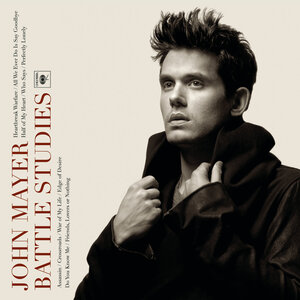
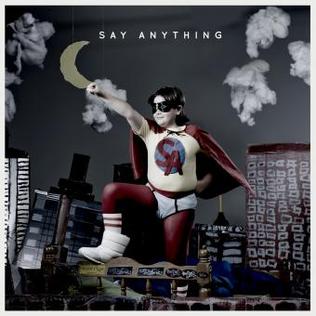






 “Crash Love” can mean many different things.
“Crash Love” can mean many different things.
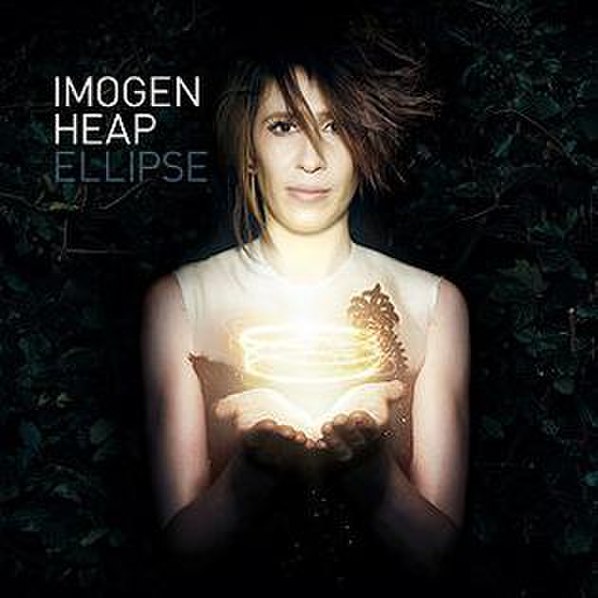
 Jay-Z- The Blueprint 3 (****)
Jay-Z- The Blueprint 3 (****)
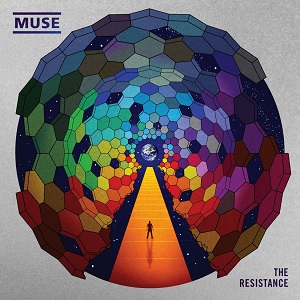 Muse- The Resistance (***)
Muse- The Resistance (***)



